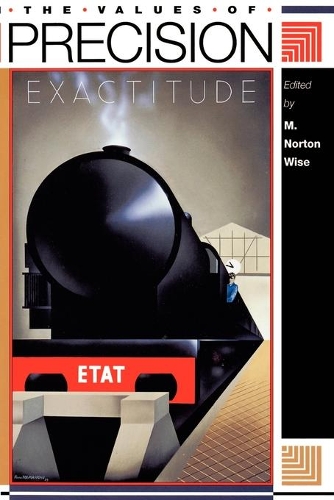
The Values of Precision
(Paperback)
Publishing Details
The Values of Precision
By (Author) M. Norton Wise
Princeton University Press
Princeton University Press
17th June 1997
United States
Classifications
Professional and Scholarly
Non Fiction
Physics
History of ideas
530.809
Physical Properties
Paperback
380
Width 197mm, Height 254mm
539g
Description
This finite study examines how exactitude has come to occupy such a prominent place in Western culture. Beginning with the late 18th century and continuing into the 20th, the essays here support the view that centralizing states and large-scale commercial enterprises have long been the major promoters of numerical precision. Photos & illus.
Reviews
"Standardization and precision measurement have often been taken for granted by historians of science. Norton Wise should therefore be applauded for having put together this excellent collection of essays that places the topic ... at the center of historical attention."--Sven Widmalm, Science "Sheds new light on and thus makes an important contribution to our understanding of the sometimes surprising results of mathematicization."--Dennis H. Rouvray, Endeavour "[A] pleasure to read, and it reveals much about quantification, the trustworthiness of numbers, the role of the professions, and the relations between science and technology... "--Mary S. Morgan, Economic History Review "Taken singly, each of the essays is of unusually high quality; taken together, they are the best introduction available in English to the diverse practices, applications, and morals of precision."--Lorraine Daston, Isis "... explores how the concept of precision emerged and came to be valued in Western culture... What is clear from this book is that the perceived value of precision lies as much with how it is attained, and by whom, as with the degree of precision itself."--New Scientist
Author Bio
M. Norton Wise is Professor of History and Director of Graduate Studies for the Program in History of Science, Princeton University.
